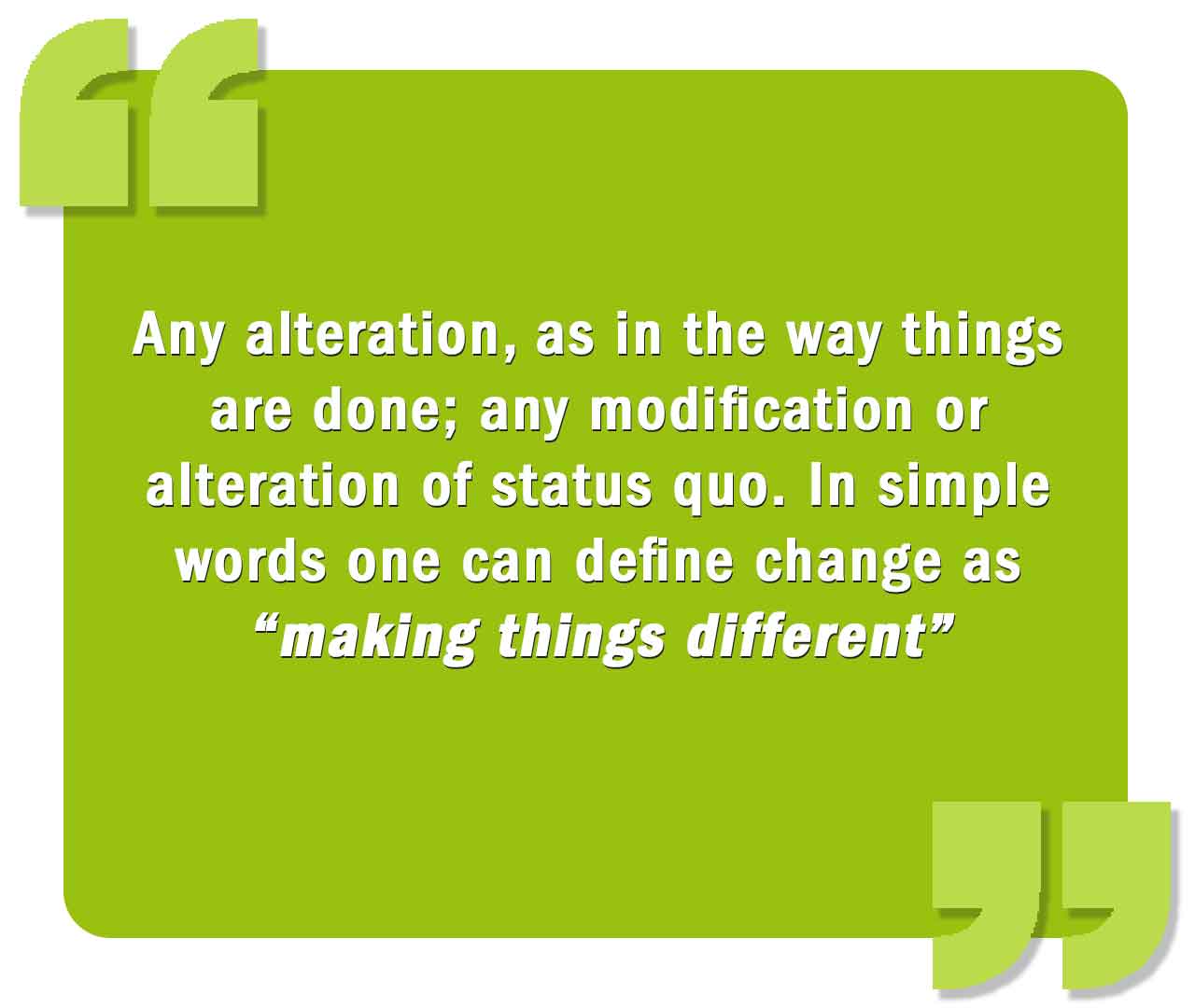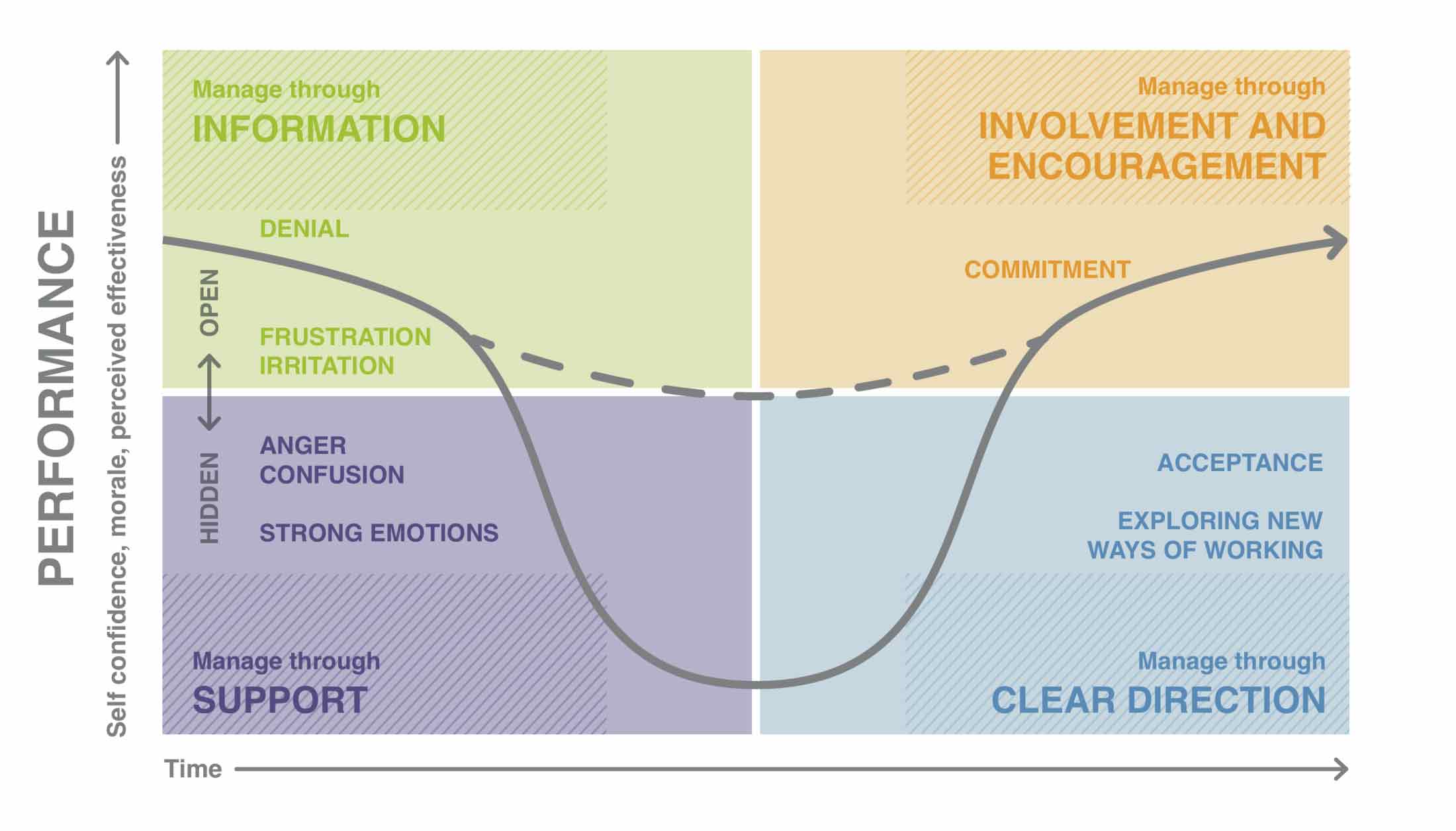Leading and Landing Change:
What Do Your Managers Need to Know
WHAT TO CONSIDER
We often hear that change is a fact of life in many industries and in many companies.
Perhaps now, more than ever, this is the case.
But what does this mean for managers, whatever level they work at, in your organisation?
As with anything that managers need to lead on, the first starting point is making sure that our managers recognise the impact that change is having not only on themselves but on their team and the people that they work with. We then need the managers to take the lead in making the change happen in a positive way.

The reality is that change can be stressful and may not be successful, if it is not managed well. However, if we plan for and manage change, the process of change can be motivating as well as provide new opportunities.
We have included below the top things that in our experience your managers need to know about managing change.
TO START: OWN THE CHANGE AND LEAD THE WAY
Each manager needs to recognise that he or she is responsible for leading the team through this change. It might be change that occurs daily because of operational circumstances or it could be caused by significant events such as mergers and acquisitions, but either way, the manager needs to be able to respond.
For the change to succeed, the first step is to help managers appreciate the important role that they play in making the change succeed. Without their buy-in and support, the change is likely to fail.
THEN: UNDERSTAND THE CHANGE CURVE AND KNOW HOW TO RESPOND

But What Does the Change Curve Mean in Practise?
Recognise the Process
Recognising that change is a process is an important first step. This is a process that the managers will go through at an individual level, that their peers will go through as well as those in their teams.
Getting Buy-In, Encouraging Action and Providing a Clear Vision
The first step is for the manager to provide the information necessary for the team to understand what is happening and what it means for them. Before getting into the detail, the teams need to understand why this change is necessary, why it is happening now and what needs to be achieved. A clear vision and a clear strategy will help people to buy-in and feel motivated by the change.
Giving Support: We Are All Different
Everyone will need support but probably to differing degrees. Equally, different people will respond in different ways. Some people will be very open about what they are feeling whereas others may be less vocal or visual with their reactions.
At the same time, some of the team will take more naturally to the change and the rate of change, others may find change harder to cope with.
Even if the team is too big for the manager to know how each person is likely to react, the manager should be aware of how he or she personally feels and should recognise that each team member may have the same response but will very likely have a different response.
In summary, the manager needs to be flexible and able to adjust his or her attitude and behaviour accordingly.
Provide Leadership and Clear Direction
There is significant research that highlights that team members will typically follow their manager’s attitudes and behaviours.
It is easy to forget this as managers, especially if we are feeling under pressure ourselves.
However, as managers, our role is to set an example of how to behave and how to react as well as to provide a clear steer on what to do next and where to aim for.
Managers will not always believe the change is required or that is it being implemented correctly, but the way we discuss this with our teams, work through the solutions and together find the best way forward, will set the tone for the whole team.
From senior management down, the managers need to demonstrate their own buy-in and provide a clear direction on the path that will be followed.
Involvement and Encouragement
Team members will need involvement and encouragement to succeed and achieve the goals. This is particularly the case if change feels constant within the organisation.
As with any part of management, setting objectives and giving feedback are important through this process of change. Positive feedback needs to be provided effectively and difficult conversations need to go ahead and cannot be avoided.
TO FINISH: PROVIDE THE SKILLS, TOOLS AND KNOWLEDGE
Many of the knowledge and skills required to manage change are the same core knowledge and skills that managers need in all parts of their role.
Yet in a period of increased, and possibly constant change, it becomes even more important to give your managers the tools they need to succeed.
In particular, we recommend a focus on the following for managers:
- Understand the change process and what this means to themselves, their peers, their teams and other stakeholders
- Be clear on the manager’s role. As managers, we cannot look to others to make the change happen; we have to make the change work in our teams.
To do this, managers need to take an active role:
- Provide a clear vision, clear objectives and a clear strategy
- Talk through issues and concerns openly, and make it clear what can and cannot be resolved
- Plan out the changes and involve the team in the process
- Be clear with each individual what is expected, when it is to be done and what good will look like
- Keep a focus on good communication and information flow so that everyone feels informed and involved
- Listen, monitor and give feedback regularly and appropriately
- Understand that everyone is different, will react differently and will need different types of support
- Stay enthusiastic but acknowledge when it is tough otherwise the manager does not seem credible
- Stay focused on solutions and expect the same of your team
- Aim to set a clear example, motivate and inspire, even when it gets tough
PLEASE GET IN TOUCH
If you would like to discuss any of the points covered, please let us know. We are always happy to catch-up and brainstorm ideas.

